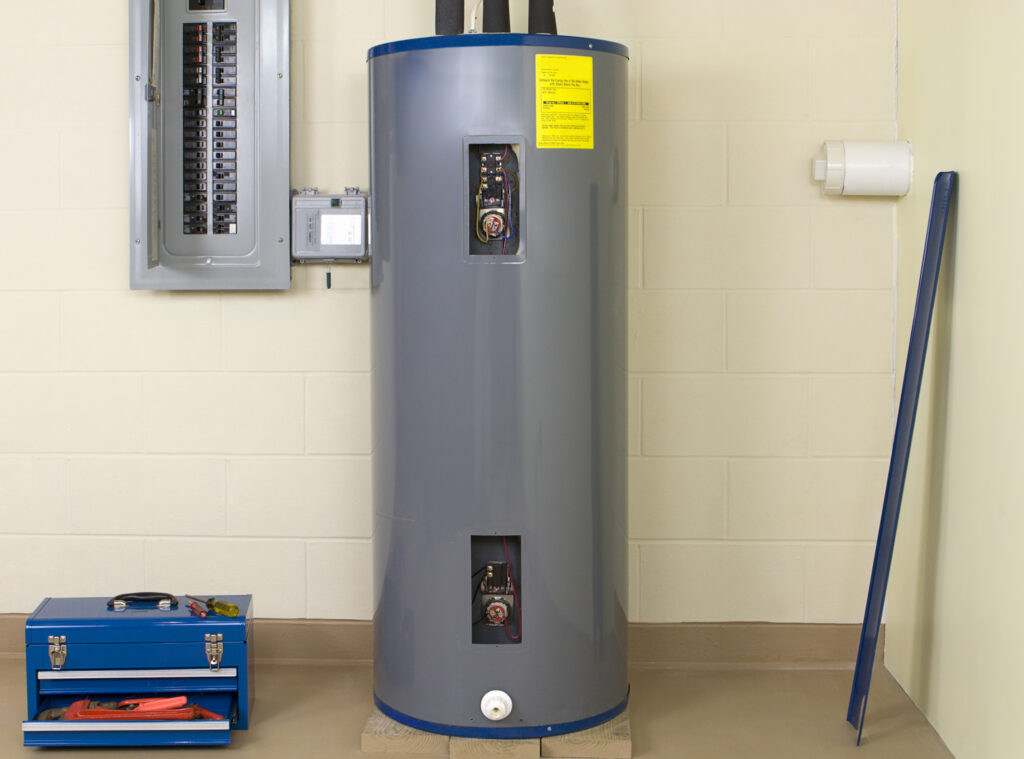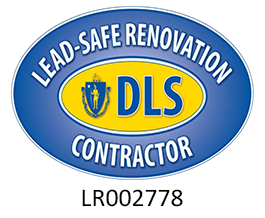Once upon a time, there weren’t many options when it came to purchasing a water heater for your home. You basically had two choices: gas or electric. Over the years the water heater landscape has changed, with more options available than ever. You can still choose between gas and electric, but you can also consider tankless and hybrid models.
Wondering which is best for your hot water needs and budget? Read on as we dive into the world of water heaters so you can determine the best one for you.

Storage Tank Water Heater
The most common type of water heater, storage tank models consist of an insulated tank with electric or natural gas power for heating. Gas units use a flame burner while electrically-powered units use heating elements or coils to warm the water to a temperature regulated by a thermostat. The water is kept at a preset temperature inside the tank on standby until needed. Once the tank’s hot water supply runs out, it can take up to an hour for the heater to reheat another supply of water.
Tankless (On-Demand) Water Heater
Rather than continually heating water in a tank, tankless water heaters operate on demand and don’t start heating water until it’s called for. Like storage tank units, tankless water heaters use gas or electricity to heat water. When a hot water tap is opened, cold water enters the tankless heater via a pipe and is quickly heated by a gas burner or electric coil. However, unlike a tank-style unit, a tankless water heater offers an endless supply of hot water while being more energy-efficient.
Heat Pump (Hybrid) Water Heater
Heat pump, or hybrid, water heaters work off the concept that it’s easier and cheaper to use existing heat than it is to create it. Heat pump water heaters take the heat from the air and use it to warm water. A heat pump water heater compresses the surrounding air, expels the cool air, and retains the warm air to heat water. Why is it called a hybrid, you ask? Because it uses electrical coils to heat the water when hot water consumption is higher than normal.
Things to Consider
Now that you know the types of water heaters available, how do you know which is right for your needs? Here are 5 things to consider when making a decision.
1. Venting Needs: Electric water heaters don’t require vents, therefore they can be installed almost anywhere. Gas water heaters produce carbon monoxide exhaust gases and moisture when they burn and require a ventilation system which takes up more space.
2. Capacity: Tank-style water heaters come in capacities ranging from 20 to 100 gallons. The larger the capacity, the more hot water you can use before the supply runs out. Typically, a 40-gallon tank is sufficient to handle a household of 4 people. Add 10 gallons of capacity for each additional person.
3. Size: The higher the capacity, the larger the storage tank. Determine how much space is available when selecting a new water heater. However, if you’re tight on space, consider the much more compact tankless water heaters.
4. Efficiency Rating: All water heaters are rated with a Uniform Energy Factor (UEF), which indicates how much of the energy used by the unit actually heats water. A water heater with a UEF of 0.60 means that 60 percent of the energy consumed by the water heater goes toward heating water.
5. Overall Efficiency: The UEF rating isn’t the only thing to consider when it comes to efficiency and operating cost. For example, a gas water heater will have a much lower efficiency rating than an electric model, but because gas is significantly cheaper, running a gas heater will cost considerably less in the long run. Additionally, tankless water heaters cost significantly less to operate than tank-style heaters because they don’t’ continuously heat water. Depending on your hot water usage, a tankless system can save as much as 40 percent off an energy bill.
At Pann Home Services & Remodeling, our expert plumbing team can take care of all your hot water needs. We’ll take a close look at your current system, assess your hot water needs, and recommend an option that makes the most sense for your home and budget. Contact us today for more information or to schedule an appointment.









